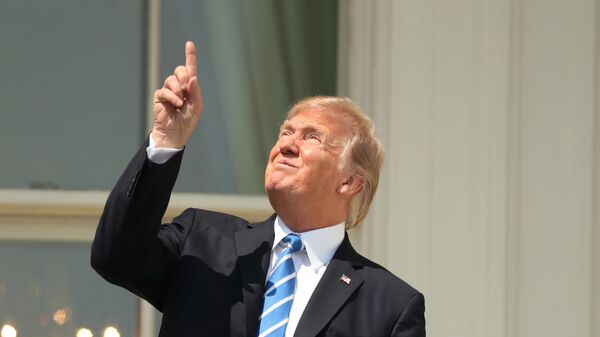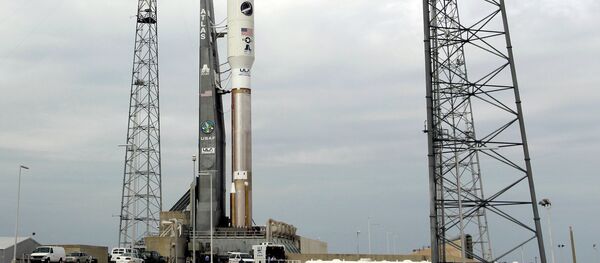What the 2019 National Defense Authorization Act (NDAA) bill agreed upon by a House-Senate conference committee does do is direct US Secretary of Defense Jim Mattis to "develop a space warfighting policy," Futurism noted July 25. (The bill passed the House Thursday; it must next pass the Senate before the president can sign it into law.)
On Tuesday, Trump spoke before the Veterans of Foreign Wars national convention in Kansas City, Missouri, about his proposed sixth branch of the US armed forces.
"My thinking is always on military and military strength," the president told the crowd, Military.com reported. "That is why I'm proud to report that we are now undertaking the greatest rebuilding of our United States military in its history. We have secured $700 billion for defense this year, and $716 billion next year — approved."
"And I've directed the Pentagon to begin the process of creating the sixth branch of our military. It's called the Space Force," Trump continued. "We are living in a different world, and we have to be able to adapt, and that's what it is. A lot of very important things are going to be taking place in space."
"And I just don't mean going up to the moon and going up to Mars, where we'll be going very soon… We'll be going to Mars very soon. But from a military standpoint, space is becoming every day more and more important."
Trump can be forgiven for not knowing all the contents of the 2,552-page NDAA conference report of the House and Senate Armed Services Committees, but he was wrong about Congress being cooperative.
The ball is in the legislature's court, too. When Trump first announced the Space Force back in June, Vox quickly pointed out that it's Congress' explicit responsibility to "raise and support armies," according to the US Constitution. The last time a new branch of the military was created — the US Air Force in 1947 — it was Congress who decreed it, not the executive.
Other parties are against the idea of the Space Force in any form. The House's version of the conference report sidestepped POTUS' ambitions entirely, instead calling for the establishment of "a subunified command for Space under United States Strategic Command for carrying out joint Space warfighting," Military.com reported.
The Air Force, which presently oversees space military functions, such as they exist, is adamantly opposed to the idea. "The Pentagon is complicated enough," Air Force Secretary Heather Wilson said in June 2017, Breaking Defense reported. "This will make it more complex, add more boxes to the organization chart… if I had more money, I would put it into lethality, not bureaucracy… I don't need another chief of staff and another six deputy chiefs of staff."
So it seems for now, the Space Force has been left out in the cold, and Trump faces an uphill battle in trying to change that.




